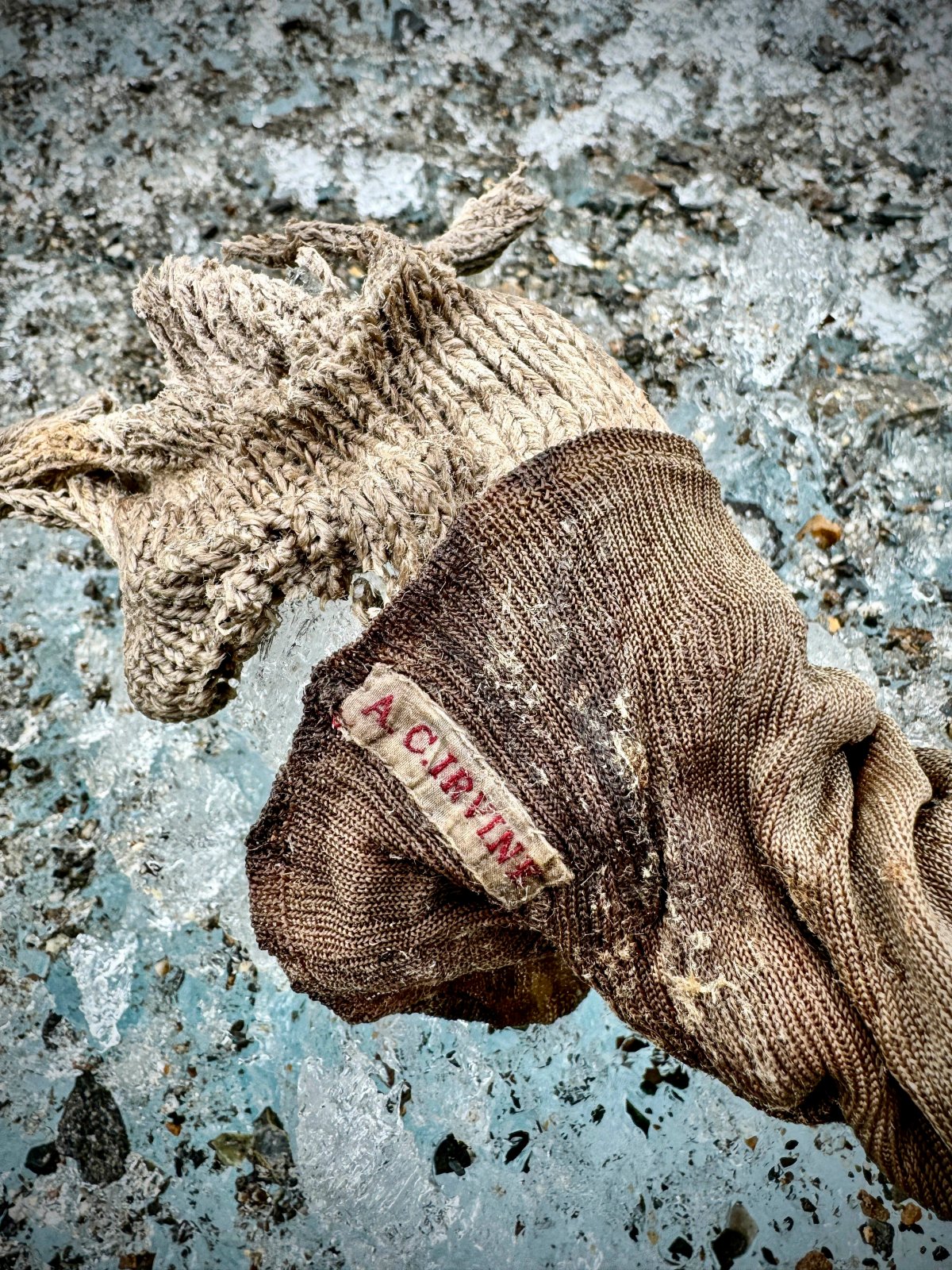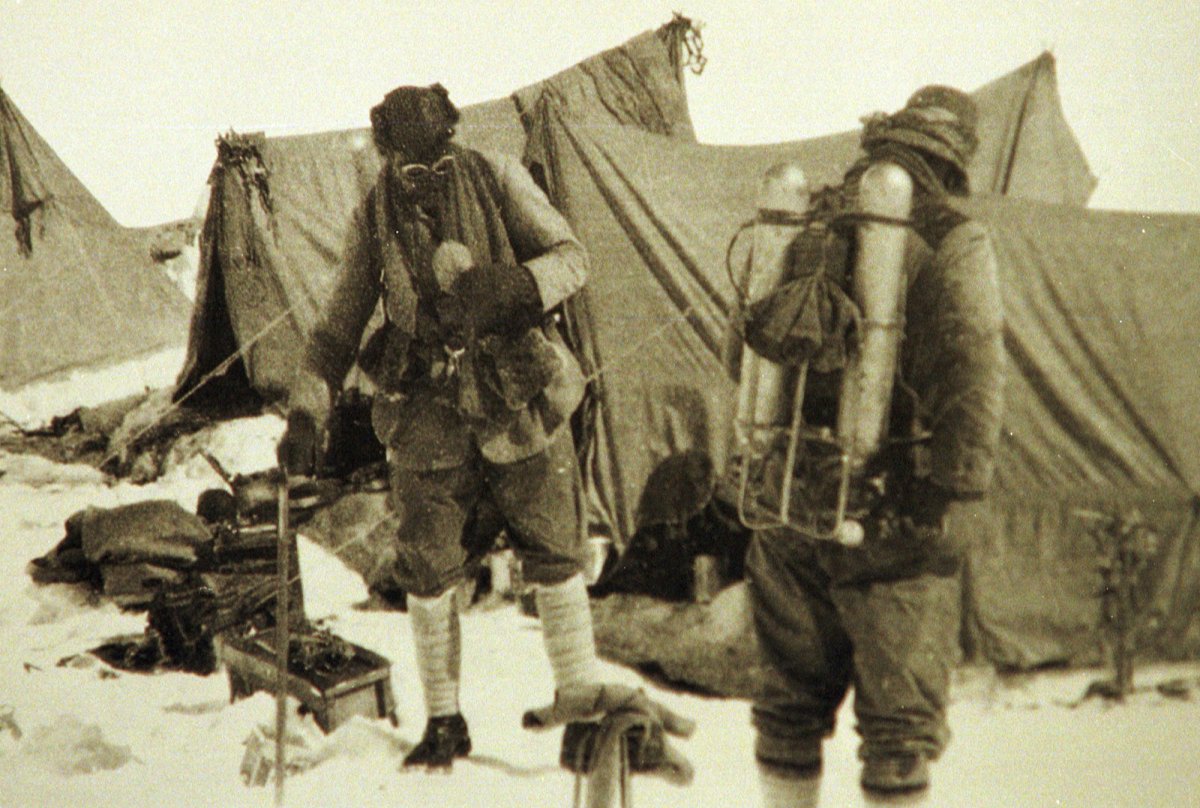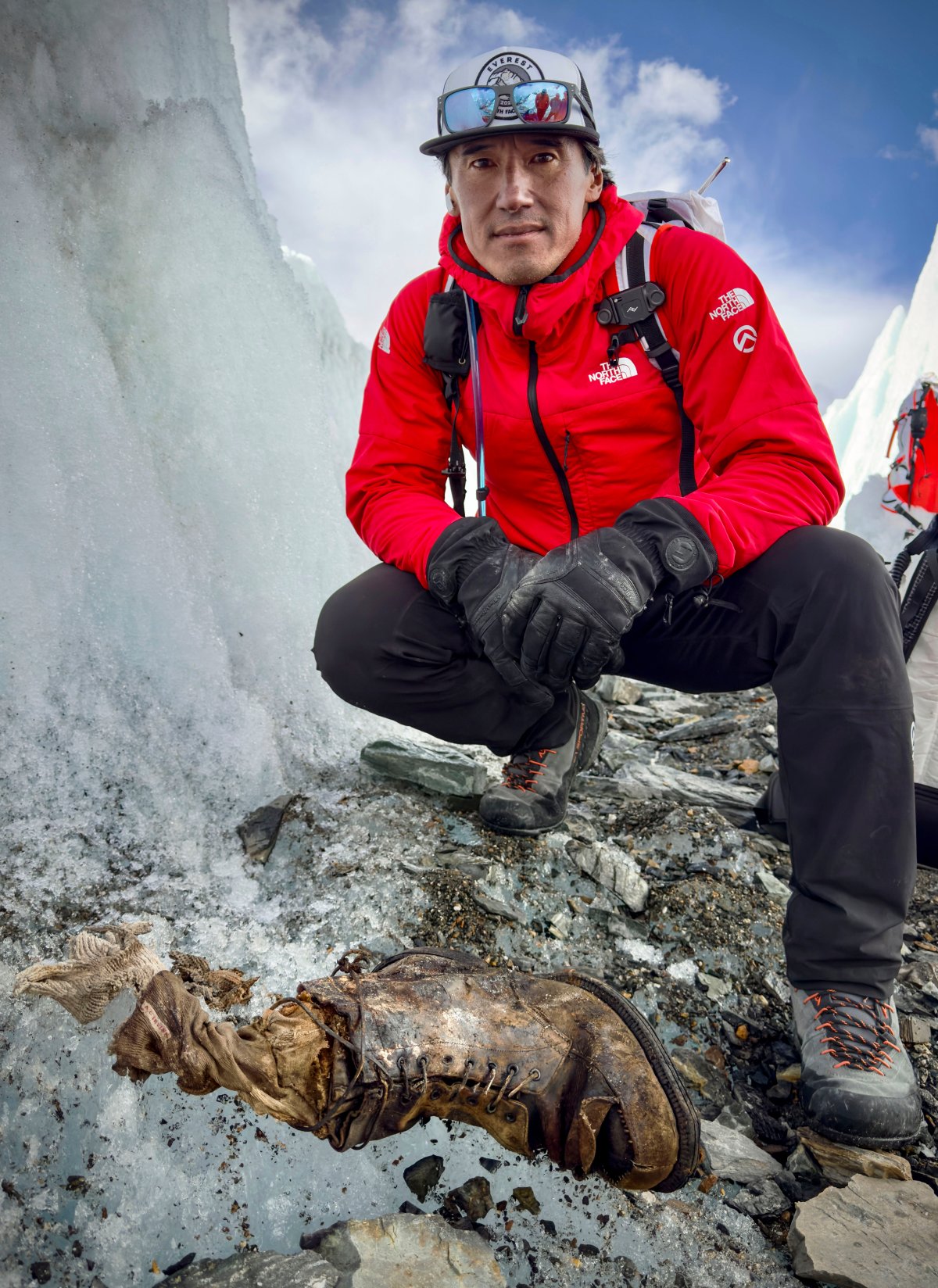100 years later, foot of lost Mount Everest
climber Andrew Irvine likely found
For the last 100 years, a mystery has plagued explorers climbing Mount Everest — but the discovery of a severed human foot may finally provide some answers.
Last month, a team of filmmaking climbers said they discovered an old leather boot peeking out from melting ice on the Central Rongbuk Glacier, below the north face of Mount Everest. Upon closer inspection, the filmmakers discovered a sock still in the boot, with the foot inside, branded with an embroidered stitch reading, “A.C. Irvine.”
Immediately, the National Geographic documentary team said they realized this was no ordinary boot. They believe it belonged to English mountaineer Andrew Comyn “Sandy” Irvine, who attempted to reach Everest’s summit with his climbing partner George Mallory in June 1924.
Irvine, 22, and Mallory, 38, may have been the first people to summit Everest, though it has so far been impossible to determine, since the duo never returned.
Since then, the mystery has fascinated people both inside and out of the international mountaineering community. Much of the fascination has had to do with a camera carried by Irvine during the trek, which could potentially hold undeveloped film to prove whether he and Mallory reached the summit.
Photographer and director Jimmy Chin told National Geographic that discovery of the foot had his team “all literally running in circles dropping F-bombs.”
He speculated the boot had only melted out of the ice about a week or so prior to its discovery.
The remains were being disturbed by ravens, Chin said, so his team asked permission from the China-Tibet Mountaineering Association to carry the foot and boot down the mountain in a cooler.
Though the team cannot yet say for certain whether the remains belong to Irvine, Chin is confident.
“But I mean, dude,” he said. “There’s a label on it.”
Chin contacted living relatives of Irvine to share the news.
Julie Summers, 64, said the foot and boot “tells the whole story about what probably happened.”
Summers, who wrote a biography about her great-uncle, told National Geographic the discovery is a form of closure. She speculated Irvine’s remains may have been carried down Everest by avalanches, and later crushed by the moving glacier.
The foot will be DNA-tested and compared to samples provided by Irvine’s living family members.
Prior to the discovery of the boot, Chin said his team identified an oxygen bottle bearing the date 1933. That year, an expedition of climbers discovered an ice axe that had belonged to Irvine.
Chin and his team have not disclosed where exactly the remains were found in an attempt to dissuade others from searching for trophies.
Mallory’s remains were discovered in 1999. His body had a broken leg and showed signs of deep rope lacerations, meaning he likely suffered a fall. Many believe Irvine would have fallen with him, as it is common practice for climbers to tie to one another.
Mallory had reportedly carried a photo of his wife while climbing Everest, which he planned to leave at the summit. The photo was not on his person, and his snow goggles were in his pocket, leading some to believe he and Irvine had indeed been successful on their ascent.
Before now, there was no trace of Irvine.
Irvine and Mallory attempted to reach Everest’s summit 29 years before Edmund Hillary and Tenzing Norgay climbed to the top. Hillary, an explorer from New Zealand, and Norgay, a Sherpa mountaineer from Nepal, are the first two people known to have reached Everest’s summit.






No comments:
Post a Comment